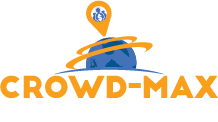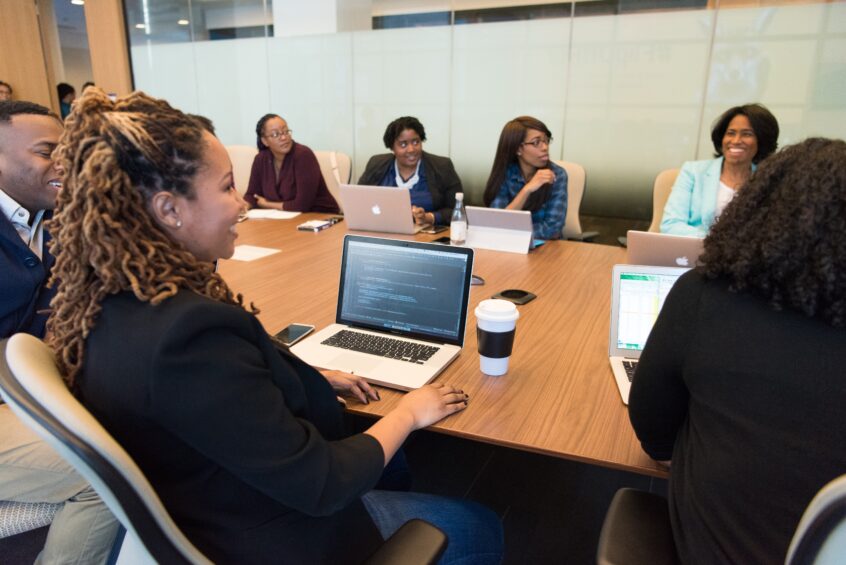Introduction
The data is clear and consistent the traditional funding methods don’t work for Black-owned businesses, founders, or real estate developers. My mission in life is to introduce the Black community to the potential and power of investment and real estate crowdfunding as a community-led economic development tool. Investment crowdfunding provides access to capital for real estate developers and business owners while providing a wealth-building opportunity for community members through inclusive investing. If we, as the Black community, embrace this capital aggregation and marketing tool to its full capacity it has the potential and power to transform our communities economically and socially. Imagine if you had 10,000 people invest $100 you have raised $1million.
Crowdfunding is a Compound Word
In my decade of crowdfunding experience, I have found one fundamental rule that applies no matter what type of crowdfunding you are: If you don’t build an excited and engaged crowd you will not receive the funding you desire for your project! This has been my consistent mantra dating back to 2011 when I first discovered the Kickstarter platform. Crowd building is the most difficult part of crowdfunding. This is where our history in American and the realities of crowdfunding collide to create the perfect storm in 2021 and beyond. Because of segregation, both De facto and de jure we, as the African American Community, are already subdivided into crowds. The hurdle today is to accept this fact and build an investment crowdfunding ecosystem that allows us to use our $1.5 trillion in spending power as retail investors.
Rethinking Church
The Black Church is historically the most significant institution in the Black community and annually brings in over $14 billion in tax-free donations. This is a staggering number and very perplexing number when compared to the realities of many Black communities. My goal is not to attack the church but to suggest another role for the church as a community-led economic development institution. If just 1percent of the $14 billion donated to the Black church was intentionally invested in Black-owned businesses and real estate development annually how would this change the economic conditions in Black communities across the nation?
Black Professional Organizations
The history of segregation in the United States forced the creation of these Black professional organizations and today these organizations have over 1million members. Many of these professionals have come from underserved predominantly Black communities that are still subjected to the De Facto segregation that is a fact in every aspect of their lives even though they have followed the rules of American success by getting an education. They still have less wealth than their peers, they pay more for home mortgages, make less money, but investment crowdfunding allows this group of Black Americans to invest in Black businesses and real estate development. Intentional investment in Black-owned businesses and real estate development build not only individual but community wealth.
Black Facebook and LinkedIn Business Groups
I have identified 66 Black business groups on Facebook that have over 700,000 members and two Black Enterprise groups on LinkedIn that have over 100,000 members. Most of these businesses will at some point need access to capital and we have a plethora of data that demonstrates the traditional funding methods don’t work for the overwhelming majority of these businesses. I currently post into 15 Midwestern Black Real Estate Facebook groups that have over 17,000 members and think of the number of people that live in the major cities across the Midwest. The potential and power for Black communities to intentionally focus on investing in Black-owned businesses and real estate development are endless to transform our communities!!
The American Dream Marketplace: The Rally Point For The Black Business Community
During my time in the US Army, I learned the term Rally Point, which is a place designated by the leader where the unit moves to reassemble and reorganize. I was introduced to the American Dream Marketplace in the late fall of 2020 and I immediately saw the value of the platform. The American Dream Marketplace is the perfect rallying point for Black-owned businesses. The American Dream Marketplace is a project of the National Black Chamber of Commerce and TagFi in response to the COVID-19 the developed a digital platform to address the specific needs of Black-owned businesses to move to a more digital-first business model. As a crowdfunding strategist, I see the American Dream Marketplace as the perfect platform to rally the Black-owned businesses community to provide an introduction to crowdfunding and as a base for an initial investment in this new funding and promotion business tool.
Black Buying Power
African-American buying power has seen impressive gains since the end of the last economic downturn, jumping from $961 billion in 2010 to an estimated $1.3 trillion in 2018. Since 2000, the African-American market has seen a 114 percent increase in buying power. The boost is the result of a surge in black-owned businesses, increased educational attainment, and booming population growth. The percentage of African-Americans who completed college continues to rise (23 percent in 2017, up from 17 percent in 2000), and the population is growing at 22.7 percent since 2000, faster than the national average of 16.3 percent. The youthfulness of the African-American population skews the group’s buying power downward, as a larger share of the population has yet to hit their peak earning years.
Key Takeaways
Today with the number of members in Black Facebook and Linkedin groups the rapid development of the American Dream Marketplace the opportunity has never been better for an introduction to investment crowdfunding as an alternative to traditional funding methods for Black-owned businesses and real estate developers. The data is clear and consistent that traditional funding doesn’t work for Black-owned businesses, but according to an article in Venture Beat Black-owned businesses successfully crowdfund at a rate of over 50 percent and they have a much higher rate of representation on these platforms than the approval rate for SBA backed loans. For more information on Investment Crowdfunding and a free copy of the eBook Black Crowdfunding please visit Crowd-Max.com

